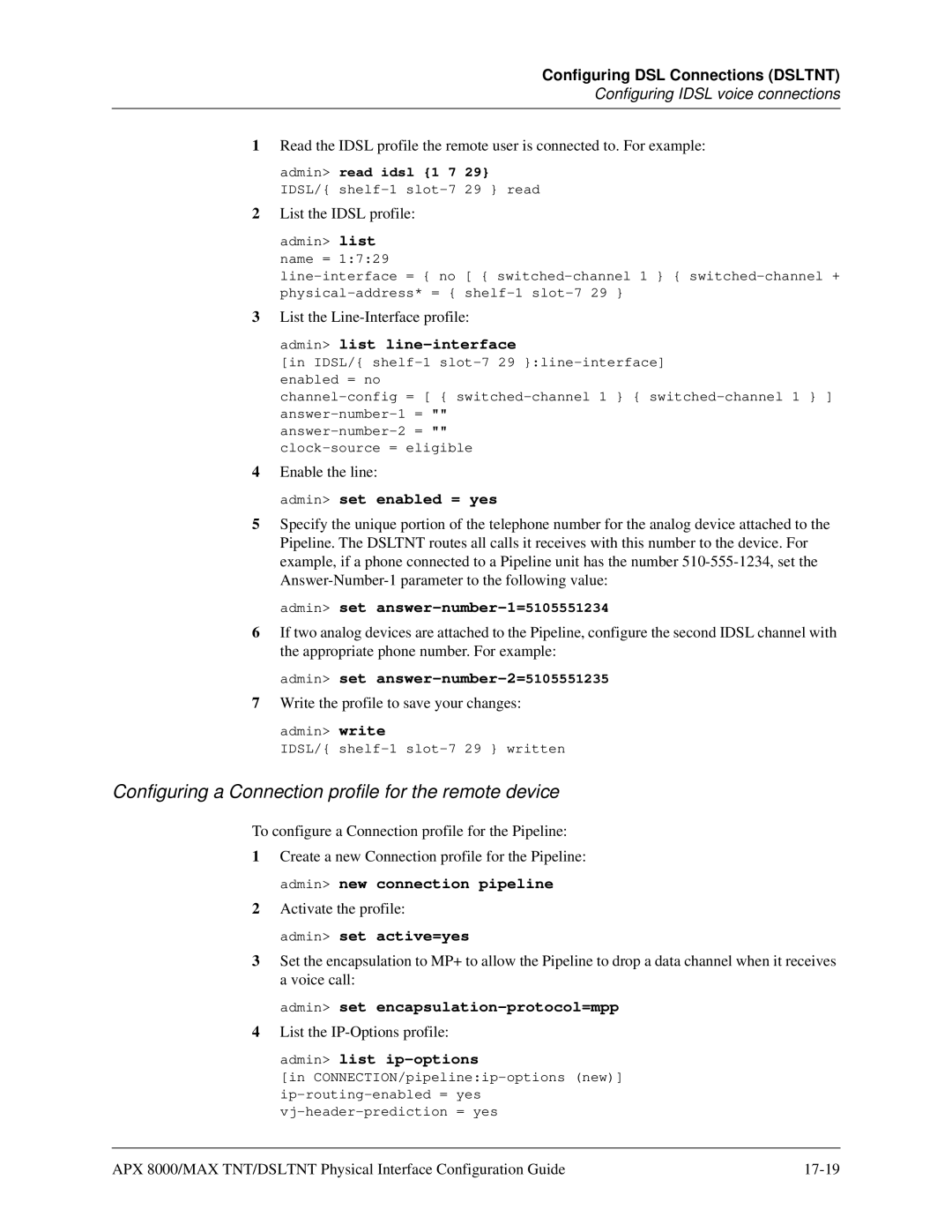
Configuring DSL Connections (DSLTNT)
Configuring IDSL voice connections
1Read the IDSL profile the remote user is connected to. For example:
admin> read idsl {1 7 29} IDSL/{
2List the IDSL profile:
admin> list name = 1:7:29
3List the
admin> list line-interface
[in IDSL/{
4Enable the line:
admin> set enabled = yes
5Specify the unique portion of the telephone number for the analog device attached to the Pipeline. The DSLTNT routes all calls it receives with this number to the device. For example, if a phone connected to a Pipeline unit has the number
admin> set answer-number-1=5105551234
6If two analog devices are attached to the Pipeline, configure the second IDSL channel with the appropriate phone number. For example:
admin> set
7Write the profile to save your changes:
admin> write
IDSL/{
Configuring a Connection profile for the remote device
To configure a Connection profile for the Pipeline:
1Create a new Connection profile for the Pipeline: admin> new connection pipeline
2Activate the profile:
admin> set active=yes
3Set the encapsulation to MP+ to allow the Pipeline to drop a data channel when it receives a voice call:
admin> set
4List the
admin> list ip-options
[in
APX 8000/MAX TNT/DSLTNT Physical Interface Configuration Guide |
